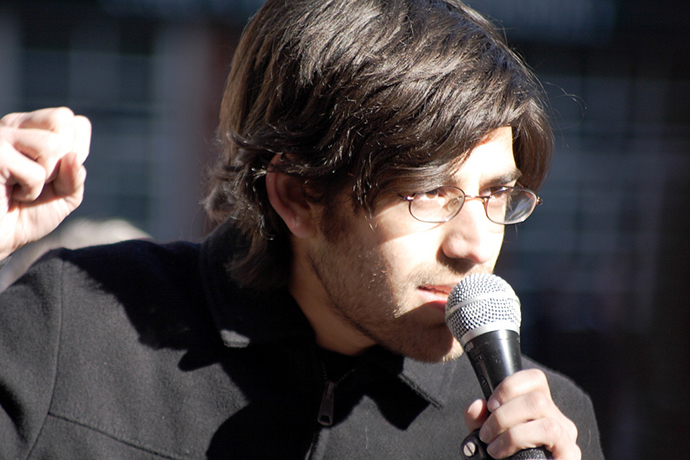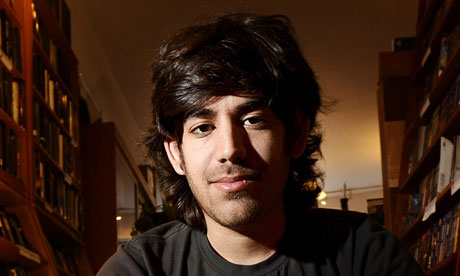A Moment Before Dying
There is a moment, immediately before life becomes no longer worth living, when the world appears to slow down and all its myriad details suddenly become brightly, achingly apparent.
For Alex, that moment came after exactly one week of pain, seven days of searing, tormenting agony that poured forth from his belly. Alex never liked his belly. Growing up he was always fat, surrounded by a family of bellowing, rotund Americans, who had a room in their house with wall-to-wall, floor-to-ceiling cabinets, all entirely filled with bags and boxes of various pre-processed semi-organic assemblages, which they used to stuff their faces at all hours of the day.
Alex had body image issues. He’d avoid mirrors because he couldn’t bear to look at himself, his large bulbous cheeks obscuring his fine features. He avoided photos, covering his face or ducking out of the way when the click of the camera came, for the same reason: he didn’t want to be confronted with the physical evidence of his disgusting nature, thought he could not go on living if he had to face the truth.
It wasn’t until he got away from his family that he discovered his weight was not an immutable characteristic, like the fingerprints he often mused about burning off, like the dental records which had caused him so much adolescent anguish, like the DNA he’d heard so much about in school. He would take off his shirt and stare at his stomach in the full-length mirror. It was there, of course, hideous as ever, but also appreciably smaller. Its size, he realized, could change.
So Alex starved himself. Cut down from three meals a day to simply two and then to only one. And even that became superfluous most days. Alex simply wasn’t hungry.
He watched his stomach dwindle, monitored his progress on the electronic readout of his at-home scale, charted the numbers on his computer, admired the plunging trendlines.
He was doing so well. He told all his friends. The secret to losing weight, he would explain, is simply not eating. You just get used to it after a while. He looked at the beggars outside his window and refrained from giving them change so that they too could experience this miracle. He changed the channel when the radio began speaking about starvation in Africa. “Starvation isn’t so bad,” he scoffed. “You get used to it after a while.” He wondered whether the USDA thrifty food budget could be further reduced.
He stopped going out. His friends always wanted to meet him for meals, or for drinks, events in which Alex simply wasn’t interested anymore. Before long, Alex’s friends were no longer interested in him.
Alex started eating in cafés, ordering a small pastry, sitting in a comfortable chair, listening to the music play over the loudspeakers. Soon he stopped doing even that.
Alex read on the Internet about death. There was a theory, increasingly well supported, that eating is what killed you. They found that rats on extremely restricted diets, rats who ate very few calories, lived impressively long. They saw the same results with other animals, up to and including chimpanzees. They suspected, but could not prove, the same was true of humans. Every little bite of food was another step towards death.
Alex started eating again. His appetite grew as slowly as it had declined but within months he was back to eating three meals a day. Food suddenly gave him pleasure again. He savored the tastes on his tongue.
One night he and his friends decided to try a new restaurant. But when the food came, Alex couldn’t eat it. He thought it smelled funny. He let it sit there, his plate lying on the table, his food seething, untouched.
The next night Alex couldn’t sleep. He’d wake up, feeling searing pains in his stomach, as if the food winding its way through his gut had spikes and was tearing apart the walls of his intestine.
He suffered like this for days, rolling on the floor in agony, unable to resist eating but every bite he ate causing him unimaginable pain. And still, he could not stop.
Five days in, it seemed like the worst had passed. The pains came less frequently, the pains were less intense. He actually slept that night.
The day Alex killed himself, he was awoken by pains, worse than ever. He rolled back-and-forth in bed as the sun came up, the light streaming through the windows eliminating the chance for any further sleep. At 9, he was startled by a phone call. The pains subsided, as if quieting down to better hear what the phone might say.
It was his boss. He had not been to work all week. He had been fired. Alex tried to explain himself, but couldn’t find the words. He hung up the phone instead.
The day Alex killed himself, he wandered his apartment in a daze. The light streaming through the windows gave everything a golden glow, which had the odd effect of making the filth he’d become surrounded with seem cinematic.
Alex wanted to go outside for one last meal, but he had trouble making the appropriate connections. Jacket, shoes, pants, wallet. Each lay in a different spot upon the floor. Alex knew they went together, he drew lines connecting them in his mind’s eye, but it didn’t see to fix anything, his eyes just kept bouncing from one item to another.
Finally, he summoned the intelligence to put them on. The world seemed funny afterwards. He noticed the way the key turned in the lock, like a hand rotating in front of his face, an interplay of light and shadow, objects in space. He noticed the packages sitting at his doorstep, begging him to open them, but their labels insisting that they were addressed to someone else. He noticed the frail old ladies who refused to obey the walk—don’t walk signs and instead walked slowly, backs hunched, across a major intersection.
He went to a new café across the street, the one place he hadn’t been to yet. Light streamed in through the huge picture windows, making the whole place seem bright and airy. So much light, in fact, that the outside seemed a glow, as if the café was suspended in the middle of a powerful white light. People held lowered, indistinct conversations. People on his left, people on his right, people behind him. But one conversation seemed to be coming from the ceiling. It might have been a trick of the acoustics. He looked up and saw two speakers staring back at him and listened closely.
The café was not playing music. It was playing a recording of two people’s lowered, indistinct conversation.
The day Alex killed himself, he had a sudden, powerful craving for a Key Lime Sugar Cookie. It was odd the power the Key Lime Sugar Cookie had over him. Alex did not particularly like limes of any sort. In fact, the idea of an actual actual, as with all fruits, thoroughly disgusted him. He hated how when he ordered sparkling water at fancy restaurants they would place a lime wedge on the top of his glass, how he had to confront the disgusting object every time he tried to take a sip, how touching the lime, even to remove it, was so digusting as to be simply out of the question.
And yet, here it was, this cookie, with the lime flavor baked into the center and large transparent grains of sugar embedded in the top, begging for him, begging for one last taste. The cookie was sold exclusively by a publicly-traded chain of cafés that tried hard to seem international, giving itself a foreign-sounding title and printing the names of major world cities on every door, even though it had not expanded much beyond the eastern half of the United States. Alex purchased the cookie.
He noticed the way he couldn’t quite form the words to request it, simply presented the cookie in front of the cashier and twitched his head, assuming (correctly) that in context the request would be understood. He noticed the way his hands moved haphazardly to remove the appropriate amount of money from his wallet. He noticed the way his change spilled out onto the counter as he tried to find the quarter with which to complete the transaction. He noticed the way he wobbled as he walked as he took the now-purchased cookie outside.
The day Alex killed himself, he savored his one remaining cookie, the sweetness of the embedded sugar grains, the bizarre flavor of what must have been lime. He used his tongue to wipe the remaining crumbs from his teeth, tossed the now-empty bag it had come in into the trash, and stepped out into the middle of the street.
You should follow me on twitter
here.January 18, 2007






